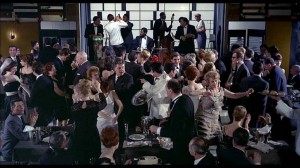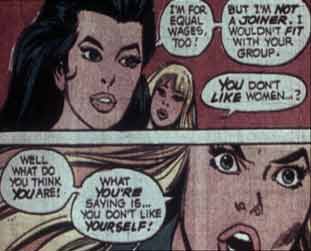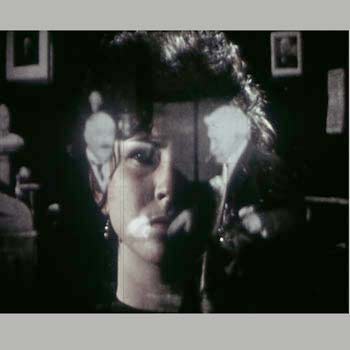From The most important and misappreciated American films since the beginning of the cinema, a coffee-table-size book of 150 pages published by the Royal Film Archive of Belgium in 1977. Two or three years earlier, when I was living and working in London, the great Jacques Ledoux (1921-1988) — whom I’d met back in 1968 when I first traveled to Brussels, to look at several of Murnau’s earliest films at his Cinematheque –- stopped by my office at Monthly Film Bulletin to ask me to participate in his eccentric but fascinating survey, which polled 203 participants around the world and then tabulated and cross-referenced the results in a number of ways.
By “misappreciated,” I’m sure that what was meant was “underrated”. I find that I still agree to a surprising degree with many of my judgments in the mid-70s –- including even my belief that Hollywood at the time was going through one of its more meager periods (even though Pauline Kael and many of her disciples seemed to think, and some of them apparently still think, that this was the richest period Hollywood has ever had in its entire history).
I made a point of mentioning Michael Snow at the end of my comments because I knew in advance that some European respondents would list him despite the fact that he is Canadian, not “American” (except in the “North American” sense). Read more
Written for the special 50th anniversary issue of the Finnish film magazine Filmihullu, published in November 2018. “The ‘rules of the game’ are simple,” wrote the editor-in-chief, Lauri Timonen. “Seize the day and choose your all time favorite film scene – just one scene, from any film ever made – and write a maximum of 2000 letters (i.e. one page / A4) about it and why that moment in time is so special to you.” — J.R.
The restaurant scene in PlayTime
Jonathan Rosenbaum

My scheme for cheating a little on your assignment is to select what I shall call “the restaurant scene” in Jacques Tati’s PlayTime — a scene or sequence, in short, that actually comprises almost half of the entire film, or at the very least more than a third of the running time. It’s not even certain when this sequence actually begins — does it start with various street pedestrians watching the last-minute construction of the establishment, or does it begin more properly with the restaurant’s official opening? — but I will assume that it ends with one of the few antirealistic gags in the film, the early-morning crowing of a distant rooster, as various restaurant customers stagger out into the street. Read more
From Monthly Film Bulletin, December 1974 (Vol. 41, No. 491).
I must admit that the hyperbole of the last couple of sentences here embarrasses me now. But readers can judge for themselves, because this first feature by Laura Mulvey and Peter Wollen has recently become available as an extra on the BFI DVD of Riddles of the Sphinx. –- J.R.
Great Britain, 1974 Directors: Laura Mulvey, Peter Wollen

The film is composed of five sequences, each preceded by a quotation. 1: “Ghost white like a not yet written page” (Mallarmé, “Mimique” ): A mime of Kleist’s Penthesilea, filmed in long shot from a fixed camera position. 2: “The shadows sprinkled in black characters” (Mallarmé, “Quant au livre”): A lecture on Kleist’s play, the myth of Penthesilea and the theoretical basis of the film, delivered by Peter Wollen while moving about a terrace and adjoining living room, the camera tracing an independent trajectory within the same confined space and occasionally approaching the index cards of notes left behind by Wollen at various stages in his route. 3: “Blazons of phobia, seals of self-punishment” (Lacan, after Vico): A succession of images relating to Penthesilea and the Amazons — paintings, sculptures, artifacts, tapestries, etc., Read more



